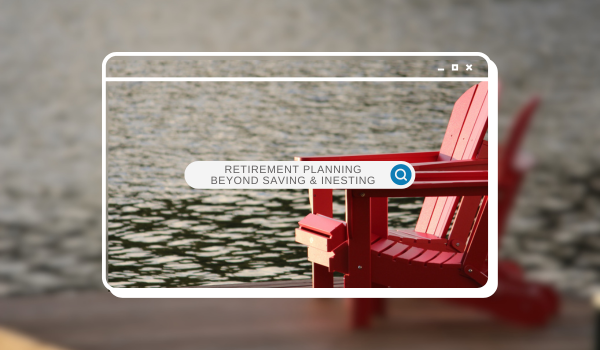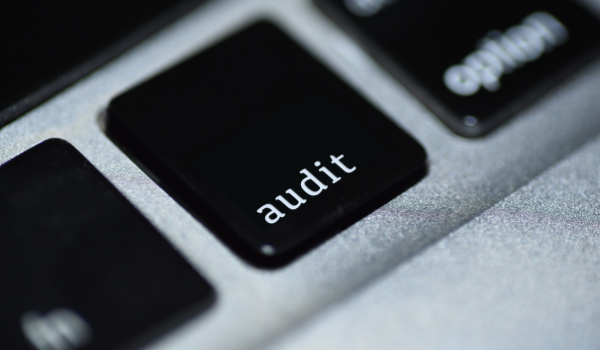Required Minimum Distributions are Back. Tell a Friend.
March 16, 2021|Parker Elmore

Key Points
- The one-year waiver of required minimum distributions (RMDs) for retirement accounts that were authorized under the CARES Act is over.
- The SECURE Act in 2019 changed some rules regarding RMDs which will now be in effect.
- Those that are 72 years and older will need to start taking their RMDs this year to avoid hefty penalties.
In 2020 with the passage of the CARES Act, seniors got relief from required minimum distributions (“RMDs”). In case you aren’t aware, an RMD is an amount of money that has to be withdrawn from your retirement plan each year otherwise it will be heavily penalized. The amount is calculated based on your retirement savings balance and life expectancy. The waiver in 2020 allowed seniors to reap the tax savings. This year, RMDs are back.
New RMD Rules
This year, the RMD rules that were in effect at the beginning of 2020, before the CARES Act, are back. However, several of those rules were changed in 2019 via the SECURE Act so this will be the first time they are in effect due to the waiver. These changes include:
- RMD Payment Age. The first age at which required minimum distributions apply has changed from 70 ½ to 72 years old. However, this is not retroactive so if you were born on or before June 30, 1949, you must continue to meet the RMD. For all others, it begins April 1st following your 72nd birthday.
- Stretch Payout for Beneficiaries. Under the SECURE Act, if you inherit(ed) a retirement account in 2020 or later, the entire account must be exhausted or withdrawn within ten years after the original owner’s death.
RMD FAQ
Q. When must I take my RMD?
A. For those turning 72 this year, you can postpone your 1st RMD payment until April 1st following the year you meet the threshold age. Those that are already 72, you must take your RMD by December 31st, 2021.
Q. I have IRA’s and a 401(k) – can I take my entire RMD from one account?
A. Not exactly. If you have multiple retirement accounts, you can take your total RMD from one account, but it depends on the type of account. Let me explain further:
- IRAs – you can aggregate your RMDs. You will have to calculate the RMD separately for each account, but you can withdraw the total RMD from one or a combination of your IRAs.
- 403(b)’s – you can also do the same as you can with IRAs if you have multiple 403(b) accounts.
- 401(k)’s – cannot be aggregated. The RMDs must be calculated separately for each account and taken individually from each account.
Q. I’m married. Can my spouse and I combine our total RMD and take it from one account?
A. Unfortunately, no. The RMD is related to the individual taxpayer so that each taxpayer must meet their individual RMD requirement.
Q. Can I combine inherited IRAs and traditional IRAs when calculating my RMD?
A. No. You must make the required minimum distribution from your traditional IRA and inherited IRA separately.
Q. Is an inherited Roth IRA subject to RMD rules?
A. Yes. While a Roth IRA is not subject to RMD rules, an inherited Roth IRA is. There is an exception for a spousal beneficiary though. With few exceptions, the inherited IRA must be fully exhausted or withdrawn 10 years from the death of the original account owner.
Q. Do I have to take an RMD if I’m still working?
A. It depends. For an IRA or qualified retirement plan from a prior employer, you will need to make your required minimum distribution. However, if your current employer’s qualified retirement plan allows for it and you own less than 5% of the company, you may delay your RMD until April 1st following the year in which you retire.
Q. Can I do a “reverse rollover” and move my IRA into my current employer’s retirement plan?
A. Assuming your current employer’s retirement plan accepts rollovers from an IRA, you can do a reverse rollover and transfer your IRA into your employer’s retirement plan. To avoid an RMD, this would need to be done prior to the year in which you turn 72, still be working, and not own more than 5% of the company.
Q. Do I have to take my RMD all in one payment?
A. No. The RMD represents a minimum distribution amount for the entire year. So, you may take it in one payment, installments, or any other method so long as the total of the payments exceeds the RMD amount. Remember – the RMD is a minimum so you can certainly take out more than the amount if needed as well. Just remember, it will not count towards your RMD for the following year.
Q. What happens if I fail to take my RMD?
A. The penalty for a failure to withdraw the RMD by the deadline is a 50% excise tax imposed by the IRS on the shortfall of the amount not taken. The penalties are substantial so it’s important to have a strategy well in advance of the deadline to avoid any such issues.
Q. Do RMD’s impact my taxes?
A. Yes. When you withdraw your RMD, it is considered regular income. This makes your RMD subject to Federal and, in some cases, state income taxes. You should consider withholding on any RMD to ensure that you’re prepared at the tax-filing time to avoid a shortfall.
Q. What are the potential changes coming to RMD’s?
A. There is currently bipartisan support for retirement legislation in Congress. It would raise the required minimum distribution age to 75 years old. The current threshold is 72 years old and you should continue to use the current threshold for planning purposes until official changes are made. Another potential change – in 2022, the IRS will utilize an updated table for the RMD calculation to reflect longer life expectancies. The impact is that the 1st RMD payment will be about 6.6% less than it would be under the current table.
In Conclusion
The RMD rules are complex and the costs of non-compliance are significant. My advice is to discuss it with your tax and financial advisors well in advance of reaching the threshold age, 72. This will help you stay compliant and up-to-date with new rules and regulations. At Odyssey Advisors, we are always available to help so feel free to reach out to one of our consultants today.
More on Retirement:
5 Ways to Protect Your Retirement from Identity Theft and Fraud
Are Your Retirement Assets Protected?
Categories: Retirement, Taxes

About The Author As President and CEO of Odyssey Advisors, Parker Elmore is dedicated to quality service, expertise, and efficiency. With over 35 years of industry experience, Parker and the Odyssey team develop and implement solutions to the complex financial issues faced by...
More Insights From This author

October 2, 2024
Parker Elmore

August 28, 2023
Parker Elmore







